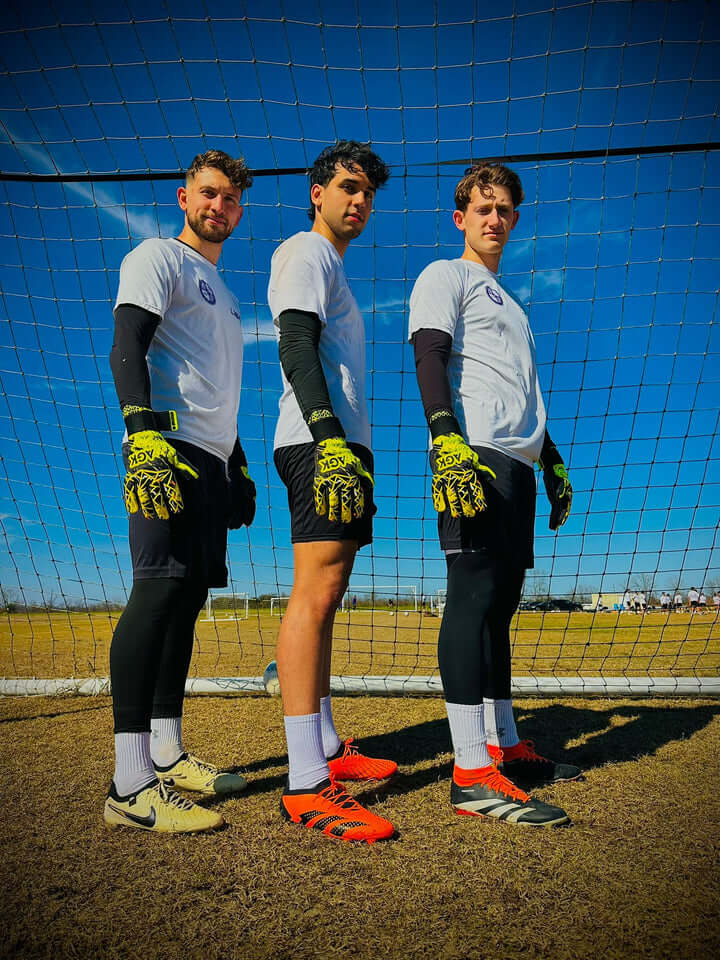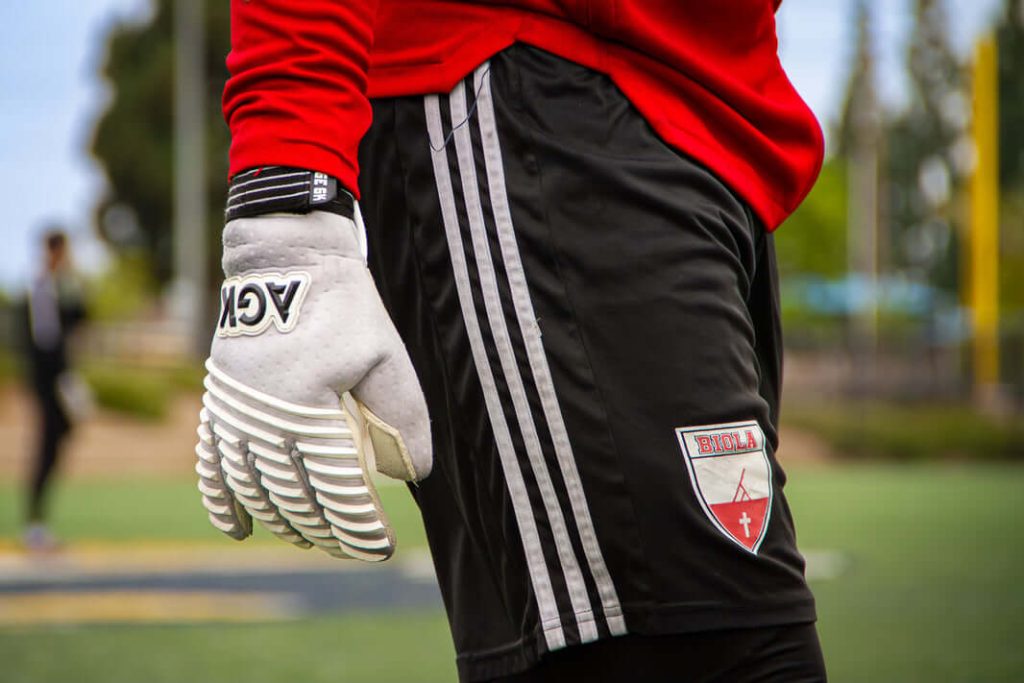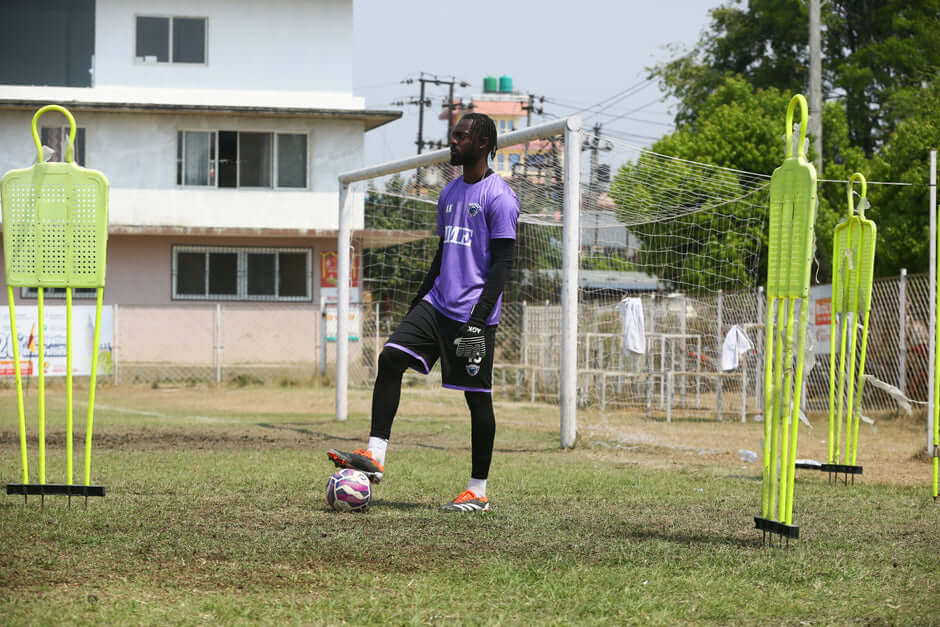Selecting the right manufacturer for your custom goalkeeper gloves can determine whether your project becomes a success story or an expensive lesson in what not to do. After building a goalkeeper glove brand from concept to professional adoption, I’ve learned that choosing a manufacturing partner isn’t about finding the cheapest quote—it’s about finding the right combination of quality, reliability, and partnership mindset.
Whether you’re launching your own brand, creating academy-specific equipment, or developing a retail house brand, these insights will help you avoid costly mistakes and build relationships that support long-term success.
Understanding the Manufacturing Landscape
The goalkeeper glove manufacturing ecosystem is more specialized than most people realize. Unlike generic sporting goods, goalkeeper gloves require specific expertise in latex processing, precision cutting, and performance-focused design. Not every manufacturer claiming to produce “soccer gloves” has the capabilities to deliver professional-quality goalkeeper equipment.
The Three Manufacturing Tiers:
Tier 1 – Premium Specialists: These manufacturers focus exclusively on high-performance goalkeeper gloves and work primarily with established professional brands. They maintain sophisticated quality control systems and use premium materials sourced from established suppliers.
Tier 2 – Quality Generalists: These facilities produce multiple types of sporting goods but have dedicated goalkeeper glove production lines with competent quality standards and reasonable material sourcing.
Tier 3 – Budget Producers: These manufacturers prioritize cost reduction over performance, often using inferior materials and inconsistent production processes that result in unreliable quality.
The key is understanding which tier aligns with your quality standards and budget constraints.
Critical Evaluation Criteria
Material Sourcing Capabilities
Professional-quality goalkeeper gloves depend on premium materials, particularly palm latex. Your manufacturer should have direct relationships with established latex suppliers and demonstrate knowledge about different latex properties.
Questions to Ask:
- Which latex suppliers do you work with regularly?
- Can you explain the performance differences between your available latex options?
- Do you maintain consistent latex inventory or source per order?
- How do you handle quality variations in raw materials?
During my brand development, I discovered that manufacturers with established supplier relationships could maintain material consistency that directly impacted glove performance. Those without these relationships often experienced frustrating variations between production runs.
Production Capacity and Flexibility
Understanding your manufacturer’s production capabilities helps set realistic expectations and avoid costly delays or quality compromises.
Key Considerations:
- Minimum order quantities for your quality requirements
- Production lead times during peak and off-season periods
- Ability to accommodate design modifications after initial samples
- Capacity to scale production as your brand grows
Many entrepreneurs underestimate how seasonal demand affects production scheduling. Soccer equipment manufacturing intensifies before each season, and manufacturers may compromise on quality or extend lead times to meet demand.
Quality Control Systems
Professional manufacturers implement systematic quality control at multiple production stages, not just final inspection.
Quality Indicators:
- Documented quality control procedures
- Material testing protocols
- Dimensional consistency standards
- Final inspection processes
The most reliable manufacturers I’ve worked with could explain their quality control systems in detail and provide documentation of their procedures. Those who couldn’t typically delivered inconsistent products.
Communication and Partnership Approach
Manufacturing custom goalkeeper gloves requires ongoing collaboration, not just order processing. Your manufacturer should view your success as connected to their own.
Partnership Qualities:
- Responsive communication during design development
- Willingness to provide guidance based on their experience
- Flexibility in accommodating reasonable customization requests
- Transparency about capabilities and limitations
Red Flags to Avoid
The “Everything is Possible” Manufacturer
Be cautious of manufacturers who claim they can produce anything without asking detailed questions about your requirements. Professional manufacturers understand the technical constraints of goalkeeper glove production and will ask about performance priorities, target pricing, and intended use cases.
Unwillingness to Provide References
Established manufacturers should be able to provide references from other clients, particularly those producing similar products. If they can’t or won’t provide references, it often indicates limited experience or unsatisfied customers.
Excessive Focus on Price
While cost considerations are important, manufacturers who lead conversations with pricing rather than performance often prioritize volume over quality. Professional manufacturers discuss requirements first, then provide pricing based on specifications.
Limited Sample Availability
Quality manufacturers should be able to provide samples of their work, either from existing clients (with permission) or custom samples for your evaluation. Those who can’t demonstrate their capabilities typically lack confidence in their quality.
The Evaluation Process
Start with Sample Orders
Before committing to large production runs, order sample products to evaluate quality firsthand. Pay particular attention to:
- Latex grip consistency
- Stitching quality and reinforcement
- Dimensional accuracy
- Overall construction quality
Request Factory Visits or Virtual Tours
Understanding your manufacturer’s facility and processes provides insights that specifications alone cannot deliver. Look for organized production areas, quality control stations, and evidence of systematic manufacturing processes.
Test Communication Systems
Evaluate how effectively your manufacturer communicates during the sample process. Clear, responsive communication during samples typically continues through production, while poor communication usually worsens under production pressure.
Validate References
Contact other clients to understand their experiences with quality, delivery reliability, and problem resolution. Ask specific questions about challenges they encountered and how the manufacturer addressed them.
Building Long-Term Partnerships
The best manufacturer relationships extend beyond individual orders to become strategic partnerships supporting your long-term success.
Partnership Development:
- Share your growth plans and timeline expectations
- Discuss capacity planning for seasonal demand variations
- Establish clear communication protocols and primary contacts
- Develop joint problem-solving approaches for inevitable challenges
Making the Final Decision
Choosing a manufacturer ultimately requires balancing quality requirements, cost constraints, and partnership potential. The lowest-cost option rarely provides the best value, while the highest-quality manufacturer may exceed your budget or minimum order capabilities.
Decision Framework:
- Define your non-negotiable quality requirements
- Establish realistic budget parameters
- Evaluate each candidate’s capabilities against these criteria
- Factor in communication quality and partnership potential
- Consider long-term scalability needs
The Bottom Line
Your manufacturing partner directly impacts every aspect of your goalkeeper glove success—from product quality to delivery reliability to customer satisfaction. Taking time to thoroughly evaluate potential partners prevents costly mistakes and establishes the foundation for sustainable growth.
Remember, changing manufacturers later is expensive and disruptive. Investing effort in selecting the right partner initially saves significant resources and headaches down the road.
Ready to start your custom goalkeeper glove project with confidence? Our established manufacturer relationships and development expertise can help you navigate this process successfully. Contact us to discuss your specific requirements and goals.


